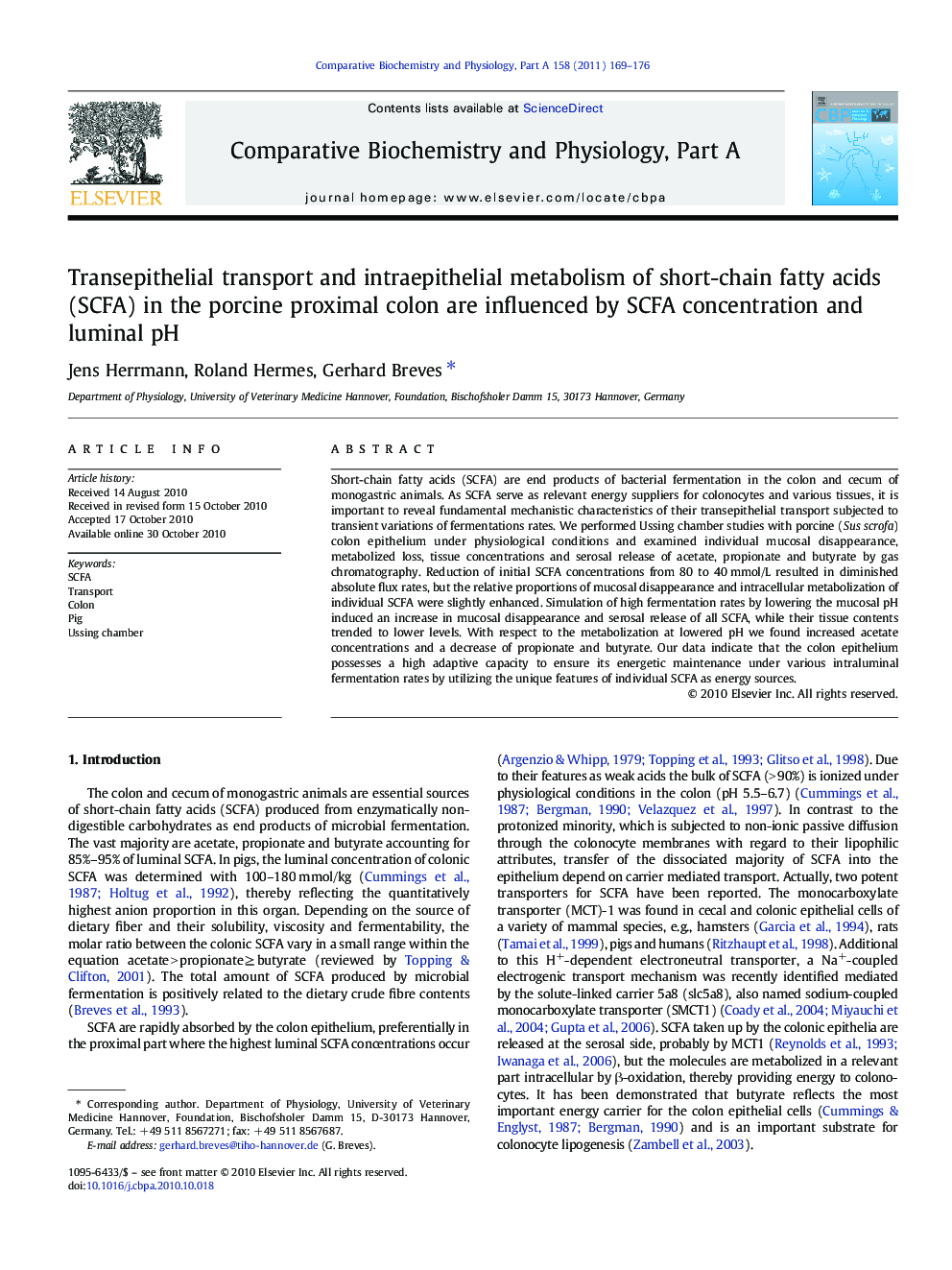| Article ID | Journal | Published Year | Pages | File Type |
|---|---|---|---|---|
| 1972900 | Comparative Biochemistry and Physiology Part A: Molecular & Integrative Physiology | 2011 | 8 Pages |
Short-chain fatty acids (SCFA) are end products of bacterial fermentation in the colon and cecum of monogastric animals. As SCFA serve as relevant energy suppliers for colonocytes and various tissues, it is important to reveal fundamental mechanistic characteristics of their transepithelial transport subjected to transient variations of fermentations rates. We performed Ussing chamber studies with porcine (Sus scrofa) colon epithelium under physiological conditions and examined individual mucosal disappearance, metabolized loss, tissue concentrations and serosal release of acetate, propionate and butyrate by gas chromatography. Reduction of initial SCFA concentrations from 80 to 40 mmol/L resulted in diminished absolute flux rates, but the relative proportions of mucosal disappearance and intracellular metabolization of individual SCFA were slightly enhanced. Simulation of high fermentation rates by lowering the mucosal pH induced an increase in mucosal disappearance and serosal release of all SCFA, while their tissue contents trended to lower levels. With respect to the metabolization at lowered pH we found increased acetate concentrations and a decrease of propionate and butyrate. Our data indicate that the colon epithelium possesses a high adaptive capacity to ensure its energetic maintenance under various intraluminal fermentation rates by utilizing the unique features of individual SCFA as energy sources.
